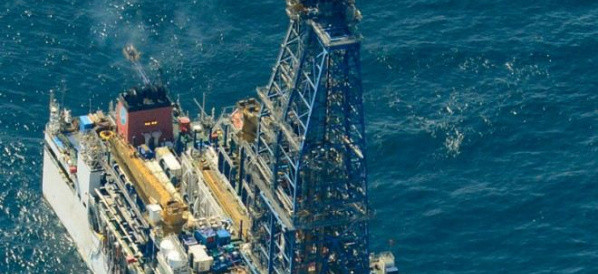 11 Terms
11 TermsHome > Terms > English (EN) > Washington, DC
Washington, DC
Washington, DC, the capital of the United States, has become increasingly central to American culture in the postwar period as the federal government has grown in size and power. Once almost universally described as a “sleepy Southern” town, Washington, DC was often viewed dismissively well into the 1960s. President John F. Kennedy, for example, quipped that the city was the worst of all worlds, a city of “Northern charm and Southern efficiency” But, by the 1990s, Washington, DC boomed: the population of its metropolitan area had quadrupled to more than 4 million since the 1950s (although the city itself had been losing population since 1950). It had incontestably become one of the nation’s leading media centers (especially for political journalism and commentary) and became a headquarters for corporate associations (which increasingly needed to lobby the government). Its monuments and museums, such as those of the Smithsonian Institution, had become cultural icons and meccas for domestic and international tourists. Its universities had gained in stature and prominence (in part because of access to the media) and its arts community expanded: the Kennedy Center strove—largely unsuccessfully—to be a national center for the performing arts. The city and suburban population became more diverse as an expanding government attracted workers from more parts of the nation and as refugees—Vietnamese, Central American, Ethiopian— and immigrants began to move to the area. Even its economic base became more diverse as biotechnology firms formed near the National Institutes of Health in the Maryland suburbs and as the Internet spawned high-technology industry in its Virginia suburbs.
By the 1990s, Washington, DC and its inhabitants were more likely to be resented than dismissed—a resentment often expressed through the contemptuous phrase “inside the Beltway.” The phrase, popularized by Reagan conservatives in the early 1980s, suggests that Washingtonians—particularly politicians, federal employees and lobbyists—are cut off from the “real world” and have no sense of the problems faced by and the values cherished by, the rest of the nation. (The Beltway is the interstate highway loop, I-495, which, since the 1960s, has circled the city. The metropolitan population is indeed statistically wealthier and better educated than the national average.) But official Washington, DC has been only part of the city’s public face and private existence. The city’s tortured history of race relations has also been part of its reputation and its contribution to postwar culture. The population of Washington, DC proper had long been overwhelmingly minority and African Americans accounted for about twothirds of the city’s population in 1990. While Washington, DC had begun officially desegregating in the 1950s—before other Southern cities—its residential and social patterns as well as its politics continued to be racially polarized through the 1990s.
Washington, DC was a center of local black civil-rights activism throughout the 1960s, as well as host to such central civil-rights events as the 1963 March on Washington.
Racial tensions boiled over in 1968 when two days of rioting followed the assassination of Martin Luther King, Jr. As many as 20,000 Washingtonians participated in the riots, which led President Lyndon Johnson to call out federal troops, who occupied the city for a week. The riots killed twelve people, caused about $15 million in damage, led many businesses and residents to quit the city and left blocks of the city in ruins, some of which were still evident at the end of the 1990s.
Race relations hit another low in 1990 when Washington Mayor Marion Barry was arrested by the Federal Bureau of Investigation in a drug bust. While Barry was a controversial figure even in the black community many of his supporters viewed the bust as a concerted attack against a black with political power. Barry’s arrest brought increased national attention to the city’s drug problem, which had led the city to have the highest murder rate per capita in the country in the late 1980s.
Barry’s arrest also set back the cause of “home rule.” For most of its history Washington, DC had been governed by Congress, increasing racial tensions as white members of Congress oversaw a largely black populace. Washington, DC was unable to cast electoral votes until the ratification of the 23rd Amendment to the Constitution in 1961. In 1974 Congress granted limited “home rule,” allowing Washingtonians to elect a mayor. Barry’s arrest killed any immediate chances that “home-rule” powers would be expanded.
Racial conflict—the aspect of local Washington, DC most apparent to the nation as a whole—was only part of the story of black Washington, DC though. While Washington, DC had long had a thriving black middle class, black prosperity expanded after the 1960s as desegregation and affirmative action enabled blacks to benefit from the expanding number of government and private jobs. However, the black middle class often moved out of the city especially to Maryland’s once rural Prince Georges County which became a predominantly black suburb.
- Part of Speech: noun
- Synonym(s):
- Blossary:
- Industry/Domain: Culture
- Category: American culture
- Company: Routledge
- Product:
- Acronym-Abbreviation:
Other Languages:
Member comments
Terms in the News
Billy Morgan
Sports; Snowboarding
The British snowboarder Billy Morgan has landed the sport’s first ever 1800 quadruple cork. The rider, who represented Great Britain in the 2014 Winter Olympics in Sochi, was in Livigno, Italy, when he achieved the man-oeuvre. It involves flipping four times, while body also spins with five complete rotations on a sideways or downward-facing axis. The trick ...
Marzieh Afkham
Broadcasting & receiving; News
Marzieh Afkham, who is the country’s first foreign ministry spokeswoman, will head a mission in east Asia, the state news agency reported. It is not clear to which country she will be posted as her appointment has yet to be announced officially. Afkham will only be the second female ambassador Iran has had. Under the last shah’s rule, Mehrangiz Dolatshahi, a ...
Weekly Packet
Language; Online services; Slang; Internet
Weekly Packet or "Paquete Semanal" as it is known in Cuba is a term used by Cubans to describe the information that is gathered from the internet outside of Cuba and saved onto hard drives to be transported into Cuba itself. Weekly Packets are then sold to Cuban's without internet access, allowing them to obtain information just days - and sometimes hours - after it ...
Asian Infrastructure Investment Bank (AIIB)
Banking; Investment banking
The Asian Infrastructure Investment Bank (AIIB) is an international financial institution established to address the need in Asia for infrastructure development. According to the Asian Development Bank, Asia needs $800 billion each year for roads, ports, power plants or other infrastructure projects before 2020. Originally proposed by China in 2013, a signing ...
Spartan
Online services; Internet
Spartan is the codename given to the new Microsoft Windows 10 browser that will replace Microsoft Windows Internet Explorer. The new browser will be built from the ground up and disregard any code from the IE platform. It has a new rendering engine that is built to be compatible with how the web is written today. The name Spartan is named after the ...
Featured Terms
fracking 2.0
Fracking 2.0 is a technology designed to extract natural gas from underwater deposits of methane hydrate, a frozen gas sometimes referred to as ...
Contributor
Featured blossaries
General
0
Terms
5
Blossaries
5
Followers
The Ultimate Internet Blossary
 11 Terms
11 TermsMarouane937
0
Terms
58
Blossaries
3
Followers
10 Richest Stand Up Comedians
 10 Terms
10 Terms
Browers Terms By Category
- Marketing communications(549)
- Online advertising(216)
- Billboard advertising(152)
- Television advertising(72)
- Radio advertising(57)
- New media advertising(40)
Advertising(1107) Terms
- Zoological terms(611)
- Animal verbs(25)
Zoology(636) Terms
- Algorithms & data structures(1125)
- Cryptography(11)
Computer science(1136) Terms
- Material physics(1710)
- Metallurgy(891)
- Corrosion engineering(646)
- Magnetics(82)
- Impact testing(1)



